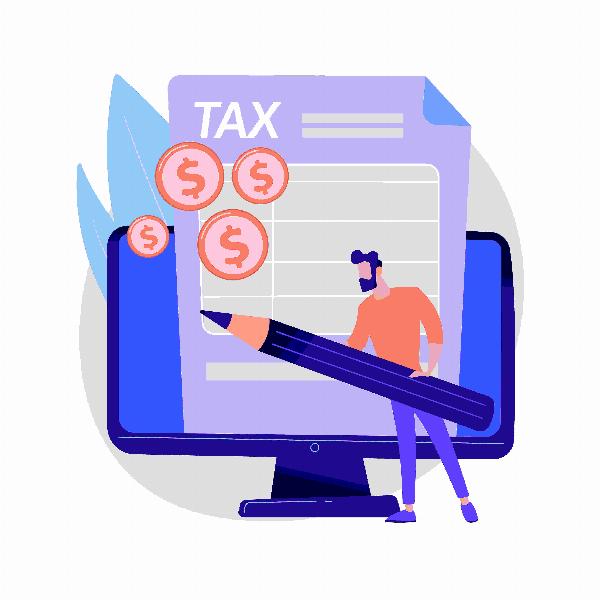The Impact of Professional Tax on Bengal's Economy: An Analytical Perspective

Strong 8k brings an ultra-HD IPTV experience to your living room and your pocket.
Professional tax is a significant fiscal tool employed by various state governments in India, including West Bengal. It serves as a major source of revenue for the state and affects a wide range of professionals and businesses. This article delves into the intricacies of professional tax in West Bengal, exploring its impact on the state's economy and its role in shaping the financial landscape.
Understanding Professional Tax
Professional tax is a state-level tax imposed on individuals earning income through employment, practicing a profession, trade, or calling. In West Bengal, this tax is governed by the West Bengal State Tax on Professions, Trades, Callings, and Employments Act, 1979. The tax is levied on individuals and entities based on their income levels, with different slabs determining the amount payable.
The Structure of Professional Tax in West Bengal
The professional tax in West Bengal is progressive, meaning that higher-income earners pay a larger amount. Employers deduct the tax from employees' salaries and remit it to the state government. Self-employed individuals, including professionals like doctors, lawyers, and chartered accountants, must also pay this tax directly to the government.
Revenue Generation and Economic Impact
Professional tax is a substantial revenue source for the West Bengal government. The funds collected through this tax are utilized for various developmental projects, infrastructure improvements, and social welfare programs. Contributing to the state's exchequer, professional tax is pivotal in enhancing public services and fostering economic growth.
Direct Impact on Revenue
The professional tax collected annually runs into crores of rupees, making it a vital component of the state's revenue stream. This revenue is crucial for financing public expenditures, including:
- Infrastructure Development: Building and maintaining roads, bridges, public transportation, and other essential infrastructure.
- Healthcare Services: Funding public health initiatives, hospitals, and medical facilities to improve healthcare access and quality.
- Educational Programs: Supporting schools, colleges, and vocational training centers to enhance educational standards and employability.
- Social Welfare Schemes: Implementing programs for poverty alleviation, women empowerment, and child welfare.
Indirect Economic Benefits
Apart from direct revenue generation, professional tax contributes to the economy in several indirect ways:
- Employment Generation: By funding various projects and schemes, the tax helps create employment opportunities across different sectors.
- Improved Business Environment: Better infrastructure and public services enhance the business climate, attracting investments and boosting economic activities.
- Enhanced Living Standards: The funds allocated for healthcare, education, and social welfare improve the quality of life for the residents, fostering a more productive and prosperous society.
Compliance and Administrative Efficiency
Ensuring compliance with professional tax regulations is critical for maximizing its economic benefits. The West Bengal government has implemented several measures to streamline the tax collection process and enhance administrative efficiency.
Digitalization and E-Governance
The introduction of digital platforms for tax payment and compliance has significantly improved the efficiency of professional tax administration in West Bengal. Key initiatives include:
- Online Registration and Payment: Employers and self-employed individuals can register and pay professional tax online, reducing paperwork and processing time.
- Automated Deductions: Employers can automate the deduction of professional tax from employee salaries, ensuring timely and accurate payments.
- Compliance Monitoring: Advanced e-governance tools enable authorities to monitor compliance and detect discrepancies, minimizing tax evasion and fraud.
Awareness and Education
The government has also focused on raising awareness about professional tax obligations and compliance requirements. Initiatives include:
- Workshops and Seminars: Organizing educational programs for employers and professionals to explain the tax structure and compliance procedures.
- Information Campaigns: Using media channels to disseminate information about professional tax, its benefits, and the importance of compliance.
- Help Desks and Support Centers: Establishing support centers to assist taxpayers with registration, payment, and compliance issues.
Challenges and Opportunities
Despite its significance, the professional tax system in West Bengal faces several challenges that must be addressed to maximize its potential economic impact.
Challenges
Compliance Issues: Ensuring complete and accurate compliance remains challenging, especially among self-employed individuals and small businesses.
Administrative Bottlenecks: Despite digital advancements, administrative inefficiencies and bureaucratic hurdles can delay the tax collection.
- Awareness Gaps: A lack of awareness and understanding of professional tax obligations can lead to non-compliance and revenue loss
- Opportunities
- Policy Reforms: Streamlining and simplifying the tax structure and compliance procedures can enhance efficiency and compliance rates.
- Technological Integration: Leveraging advanced technologies like AI and data analytics can improve compliance monitoring and fraud detection.
- Stakeholder Collaboration: Engaging with employers, professional associations, and industry bodies can foster a cooperative approach to compliance and awareness.
The Role of Professional Tax in Promoting Economic Equity
Professional tax promotes economic equity by ensuring that higher-income earners contribute more to the state's revenue. This progressive tax structure helps redistribute wealth and fund programs that benefit the economically disadvantaged sections of society.
Redistribution of Wealth
The professional tax system ensures that those with higher incomes bear a greater tax burden, facilitating the redistribution of wealth. The revenue generated funds public services and welfare programs that directly benefit the lower-income groups, thereby reducing economic disparities.
Social Welfare and Development
Professional tax revenue supports various social welfare and development programs aimed at improving the living standards of the underprivileged. These programs include:
- Healthcare Initiatives: Providing free or subsidized healthcare services to low-income families.
- Educational Support: Offering scholarships, free education, and vocational training to economically disadvantaged students.
- Housing Schemes: Implementing affordable housing projects for low-income households.
- Employment Programs: Creating job opportunities through skill development and entrepreneurship initiatives.
The government can foster inclusive economic growth and enhance social equity by channeling tax revenue into these areas.
Future Prospects and Policy Implications
The professional tax system in West Bengal has significant potential to drive economic growth and development. However, realizing this potential requires continuous policy improvements and strategic initiatives.
Enhancing Compliance and Collection
Improving compliance and tax collection efficiency is paramount. This can be achieved through:
- Simplified Procedures: Streamlining registration, payment, and compliance procedures to make them more user-friendly.
- Incentives for Compliance: Offering incentives or tax benefits to individuals and businesses that demonstrate consistent compliance.
- Stringent Penalties: Stringent penalties for non-compliance are imposed to deter tax evasion.
Leveraging Technology
Harnessing the power of technology can revolutionize professional tax administration. Key technological interventions include:
- Automated Systems: Implementing automated tax deductions and payment systems to reduce manual errors and processing time.
- Data Analytics: Using data analytics to monitor compliance patterns, identify discrepancies, and optimize tax collection strategies.
- Mobile Applications: Developing mobile applications for easy access to tax-related services, enhancing convenience and compliance.
Stakeholder Engagement
Engaging with various stakeholders, including employers, professionals, and industry bodies, is crucial for improving the professional tax system. Collaborative efforts can include:
- Consultative Forums: Establishing forums for regular dialogue between the government and stakeholders to address concerns and suggestions.
- Public-Private Partnerships: Exploring public-private partnerships to enhance tax collection infrastructure and services.
- Feedback Mechanisms: Implementing robust feedback mechanisms to gather taxpayer input and continuously improve the system.
Conclusion
Professional tax is vital to West Bengal's fiscal framework, contributing significantly to the state's revenue and economic development. Professional tax plays a pivotal role in shaping the state's financial and social landscape by ensuring equitable taxation and funding critical public services. Continuous policy improvements, technological integration, and stakeholder collaboration are essential for maximizing its impact and fostering sustainable economic growth.
Note: IndiBlogHub features both user-submitted and editorial content. We do not verify third-party contributions. Read our Disclaimer and Privacy Policyfor details.


